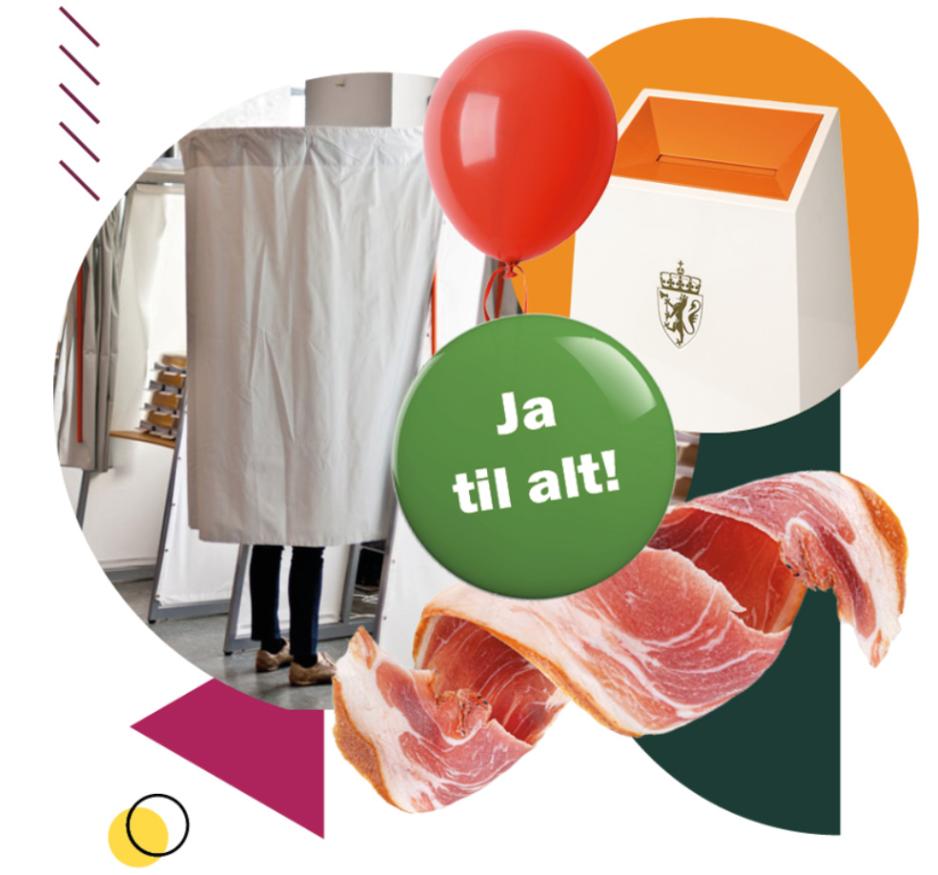Arne O. Holm says Norway's 2025 Election: The Election In Which Half of Norway Was Overlooked and Forgotten

This is how the Norwegian parliament illustrates this year's election. Very telling for the election campaign. (Screenshot from the Norwegian parliament's website)
Comment: The Norwegian parliamentary election of 2025 will go down as the election in which half of Norway was ignored and forgotten. That is both striking and scary. The gentle attempts at putting the High North on the agenda were arrogantly dismissed.
This is a comment written by a member of the editorial staff. The comment expresses the writer's opinions.
That is not news in and of itself. The High North, Norway's most important strategic area of investment, according to the parties who have bothered to include us in their programs, has always been far down on the list of priorities in the campaign.
When ignorance is echoed once again in an election year in which the geopolitical situation in the Arctic is on everyone else's radar, we have moved past ignorance and into the realm of irresponsibility.
About personal finances
Two issues have dominated the election campaign. Both revolve around our personal finances. More specifically, southerners' personal finances.
It has been about the wealth tax and tax refugees. A Northerner has fled Norwegian taxes in favor of Switzerland. There are a few large fortunes in the North, and they are concentrated in a small group.
It has also been about electricity prices, in which the parties, through complicated calculations, outbid each other in subsidies. The cost of the escapade is between NOK seven and 11 billion.
We have moved past ignorance and into the realm of irresponsibility.
No one, absolutely no one in the North, will benefit from the electricity subsidy. Yet, we contribute to jacuzzis and heated driveways in the South through our tax bill.
In the North, the problem is quite the opposite. The demand, not least due to an insufficient power grid, is out of proportion to production. This pushes the price of electricity so low that the power companies are not making any money.
The water, of which climate change has ensured a substantial amount of this eyar, flows through the turbins and right into the ocean.
Could lead to bankruptcies
The power producers' situation is so dire that it could lead to bankruptcies, or more likely, acquisition by others.
Perhaps not that serious, you might say? Power will become cheap.
No time to correct the caricature of a comment.
But yes, it is serious. We sit on a valuable resource that still has no value. It is as if we were to stop the fish from going southward and insist on keeping it ourselves.
Most of the power companies in the North are municipally owned, and the dividends from the companies' traditional profit finance kindergartens, nursing homes, and culture. To name a few.
Perhaps I would have accepted such a geographically skewed election campaign if it had also addressed the security policy challenges in the North, rather than merely incorporating them as obligatory talking points in speeches that ultimately boil down to the wealth tax and electricity prices.
Even as the government launched its High North Strategy in Kirkenes, the first comprehensive thinking about the challenges in the North since the white paper issued before Russia launched a full-scale attack on Ukraine, there was radio silence.
Well, not quite. A politician from the North hoping to be re-elected, Erlend Svardal Bøe (Conservatives), called the strategy a "brochure about Northern Norway."
A 'brochure,' that is, presented in what MFA Espen Barth Eide characterized as the "most dramatic security policy situation since WW2."
The ball is dead
Such a description is shared by most of the political parties. But there still has not been any interest in discussing how the drama was to be met. It was a dead ball call.
Drowned in the noise of wealth tax and electricity prices.
No one in the Conservative leadership had time to correct the caricature of a comment from their own parliamentary representative in the North.
Neither did anyone else. The Minister of Foreign Affairs left Kirkenes, and the Labor Party strengthened its team with players who know tax and power.
Of course, they did, in an election in which the High North barely has a place on the bench when the game kicks off, to stick to the football metaphors.
If I had the energy, I would also include criticism of the Norwegian national broadcaster, which controls most of the election campaign and has notoriously omitted Northern Norway in its national election broadcasts.
And then there is surely a politician or journalist who feels overlooked and who will be able to find examples of how they have actually put the spotlight on the High North.
They will have to forgive me. In that case, it has been drowned out in the noise of electricity prices and the wealth tax.
Measured against the number of warships and soldiers sailing and training in the North at any given time, measured against the lack of total preparedness and civil communities unable to stand against an attack from Russia, the amount of political analyses of the situation in the North becomes vanishingly small.
Disturbingly small.



